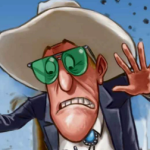Zakazane produkcje
Zaloguj się, aby obserwować tę zawartość
Obserwujący
0

The Mouse Utopia Experiment
dodany przez
bookbb, w Książki obcojęzyczne
Podobne tematy
-
- 1 Posts
- 14 Views
-
- 1 Posts
- 16 Views
-
- 1 Posts
- 39 Views
-
- 1 Posts
- 208 Views




